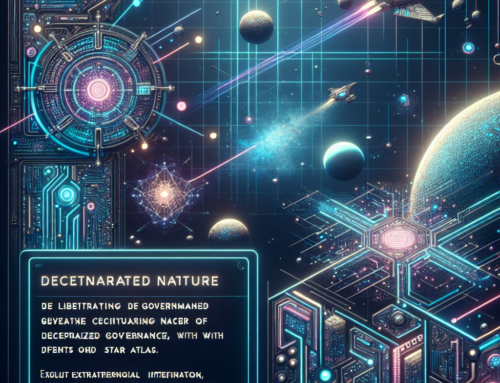Coalition Governments in Star Atlas: A Titan Analysis

Coalition Governments in Star Atlas: A Titan Analysis
In the expansive universe of Star Atlas, the concept of governance plays a pivotal role, akin to real-world political structures. One intriguing model to explore within this metaverse is that of coalition governments. Let’s break down what coalition governments mean in Star Atlas and how they can adaptively shape gameplay, alliances, and strategic decision-making.
Understanding Coalition Governments
In political theory, a coalition government is formed when multiple parties collaborate to achieve a common objective, usually for the sake of stability and enhanced governance. Star Atlas, a strategy-driven space exploration game on the Solana blockchain, has similar dynamics where players—who can be seen as political factions—can form alliances to advance their interests.
The Role of Coalition Governments in Star Atlas
-
Resource Sharing: Just like real-world coalitions often unite under economic motives, factions in Star Atlas may band together for resource pooling. Collectively, they can exploit mines, share fleet resources, and enhance their economic clout in the game. This cooperation can dramatically influence territory control and resource acquisition.
-
Strategic Alliances: In Star Atlas, coalition governments can serve to unite various factions to tackle larger threats or challenges, such as hostile players or environmental hazards. By working together, these coalitions can present a formidable front, often achieving what individual factions might struggle with.
-
Political Maneuvering: As in traditional politics, senior factions can leverage minor factions within a coalition to magnify their influence. This system mimics real-life parliamentary systems, encouraging smaller factions to align with larger ones for mutual benefits.
-
Dynamic Governance: Coalition governments in Star Atlas can change over time. If a faction feels another isn’t fulfilling its role or is acting contrary to the coalition’s goals, shifting alliances can occur. This flexibility requires players to adapt quickly to the political landscape.
- Conflict Resolution: One interesting outcome of these coalition setups is how they handle internal disputes. When disagreements arise, coalitions must negotiate and find common ground to maintain unity, demonstrating a practical side of governance in their gameplay.
Challenges of Coalition Governments
While coalition governments can lead to robustness and collaboration, conflicts are inevitable. Factions may face issues such as:
- Trust Issues: Unequal commitment levels could lead to distrust among coalition partners.
- Decision Paralysis: Too many voices can result in a lack of decisive action, hindering effective strategies.
- Resource Inequities: A perception that certain factions aren’t pulling their weight might lead to tensions and fragmentation.
Conclusion
Coalition governments in Star Atlas introduce a nuanced layer of interaction that enhances gameplay complexity and encourages collaborative strategizing among players. Understanding the dynamics of these coalitions not only aids in effective decision-making but also enriches the overall experience of engaging with the game.
For more insights and data-driven analytics about Star Atlas, visit Titan Analytics Star Atlas modules or feel free to reach out via contact us. Join the coalition and elevate your Star Atlas experience today!




